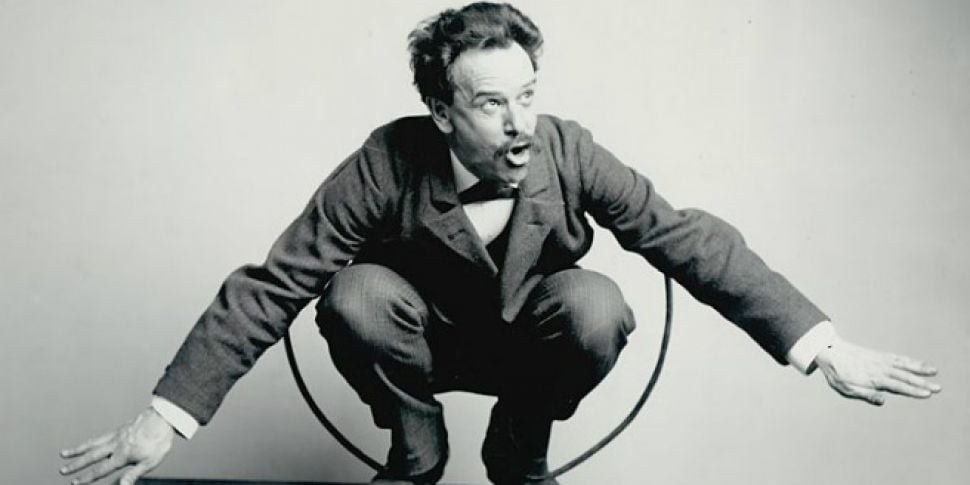Anthropology has reached that point of development where the careful investigation of facts shakes our firm belief in the far-reaching theories that have been built up - Franz Boas
Throughout history mankind has been fascinated with himself and his place in the world. The attempts to unlock the secrets behind man’s behaviour and reason for being reach far back into ancient civilisations, with many great philosophers ruminating on the subject. The advent of the Scientific Revolution, however, spelled an end to this loose theorising on the nature of man and his existence as the various sciences were formalised and made professional.
This revolution would see rigorous study and experimentation become par for the course for many fields of study in the ensuing decades and centuries. The Enlightenment saw the rules of the universe begin to be unravelled as thinkers picked apart the basic guiding principles of our world. The Romantic Movement that rose in reaction to this material view of the world highlighted the holistic nature of the universe, especially man’s role in the fields he was observing.
While the Romantic focus on intuition and introspection in science was quickly dismissed in favour of evidence gathering, this movement brought man into the spotlight as an object to be observed scientifically. Toward the end of the 19th century this series of changes in schools of scientific thought produced the field of anthropology; the study of humankind, its origins, races, societies, and cultures.
The most important figure in the emergence of this field of science was the German, Franz Boas.
 Franz Boas in Inuit clothing
Franz Boas in Inuit clothing
Born into a very liberal Jewish household in 1858 Boas was an inquisitive child. His parents’ lack of support for prescribed dogmas encouraged Boas’ interest in the natural sciences which only grew with time. At University Boas studied physics and geography and in 1883 left for Baffin Island in northern Canada to complete his final PhD project.
It was this fieldtrip that set Boas on the path of the anthropologist as he became fascinated by the island’s native Inuit and their culture and society. After collecting large amounts of data, both on the geography and the people of Baffin Island, Boas returned to Germany where he took up a position in Royal Ethnological Museum of Prussia. With anthropology not yet an established discipline museums offered the best opportunity for further scientific studies on the societies and cultures of humankind.
Joining the staff of the Royal Ethnological Museum Boas became enveloped in the ongoing divisive debate sparked by Darwin and On the Origin of the Species. After Darwin and Wallace's initial publications the theory of evolution had quickly become very popular, receiving a lot of support across the scientific community. Without knowledge of genetics and DNA, however, it was unclear how any evolutionary change was supposed to occur between generations.
Evolutionary theory was thus split in the 19th century between Darwinian and Lamarckian camps. Where Darwin argued that random mutation accounted for species changing over time Lamarck argued that species changed by inheriting characteristics and traits learned by their parents during their lifetimes. This argument was central in the emerging field of anthropology and its associated studies.
The idea of cultural supremacy goes far back in human history with some of our earliest religions differentiating between chosen people and pariahs. The theory of evolution, however, offered a clear and scientific explanation to support the idea of a cultural hierarchy; some societies had simply evolved 'more' than the others. This argument was quickly snapped up and the 19th century saw the emergence of ‘cultural evolution’ as an explanation and justification for the European domination of the globe.
This prevailing orthogenetic theory of cultural evolution held that societies follow a linear progression to an eventual goal. This idea was supported by Lamarckian thought which allowed for far more rapid and isolated species change, especially with geographic separation. The argument was that European’s alone had had the stimuli to drive them so far forward along the evolutionary path. The supposedly savage and primitive natives of Africa, Asia, and the New World simply hadn’t had the experiences to pass on to later generations and were thus at an ‘earlier’ stage in evolution.
 "The White Man's Burden (Apologies to Kipling)" by Victor Gillam in Judge, 1899
"The White Man's Burden (Apologies to Kipling)" by Victor Gillam in Judge, 1899
This idea of a hierarchy of cultures with Europe at the top didn't go uncontested. The main theory opposing cultural evolution argued that it was history and not biology that defined a society and its norms and standards. Supported by Darwinian Theory of random mutation and survival of the fittest this thesis argued that race had no bearing on an individual's intelligence or their cultural or societal ability.
Boas strongly agreed with this camp and opposed the theory of cultural evolution. He instead leaned more toward the idea of ‘the psychic unity of mankind’ as outlined and argued for by his colleague Adolf Bastian. This theory argued that all humans had basically the same intellectual capacity and that all cultures were formed according to elementary ideas. What seemed to interest Boas most in light of these theories was how and why human culture was so varied.
Boas focused his research and studies on the native peoples of North America and the vast tableau of tribes that existed, or had existed, there. With this growing interest and the rise in German and Prussian nationalism Boas decided to immigrate to the United States in 1887. His first years in the States were spent working for various museums as he organised exhibitions and studies on the continent’s native peoples.
 Killer whale mask worn by the Kwakiutl studied and documented by Franz Boas
Killer whale mask worn by the Kwakiutl studied and documented by Franz Boas
Boas had, however, also been lecturing in anthropology since 1886. As he met increasing resistance to his ideas from the museums Boas found a willing audience in academia. As a result he devoted himself fully to Columbia University’s Department of Anthropology in 1905. This was the United States’ first and leading department of anthropology and had a massive impact on the emerging field of anthropology and anthropological research.
Boas’ role in establishing Columbia’s doctorate of anthropology programme meant that he oversaw most of America’s first PhDs in anthropology. This was central to his emergence as the ‘Father of American Anthropology’ as his views and methodologies filtered into the students he oversaw and supervised. Many of whom went on to establish other leading departments of anthropology across America.
What made Boas so important to the wider world though, was his political activism and progressive views. The founding principle of Boas’ anthropology was that mankind was basically universally equal. He argued that though physiological differences were apparent there were no innate differences between the races. Boas opinion was that societies and cultures were separated by history and not biology.
The prevailing racial theories, however, placed white men above all others. Boas actively riled against this point of view and used his research and findings to speak out against racial inequality. As the 20th century progressed anthropology and genetics continually pointed toward the intrinsic equality of mankind. This helped to see racial segregation dismantled around the world and today most of the world protects against discrimination based on race.
Listen back to ‘Talking History’ as Patrick and a panel of historians and anthropologists delve into the life of the ‘Father of American Anthropology’. Join us as we hear the story of how Franz Boas changed the world with his pioneering anthropology. How a disagreement over spying saw him censured by the American Anthropological Association he helped set up. How he helped to spirit away scientists and other intellectuals threatened by Nazism’s rise in Germany, and how his own life was affected by anti-German and anti-Semitic sentiment.









